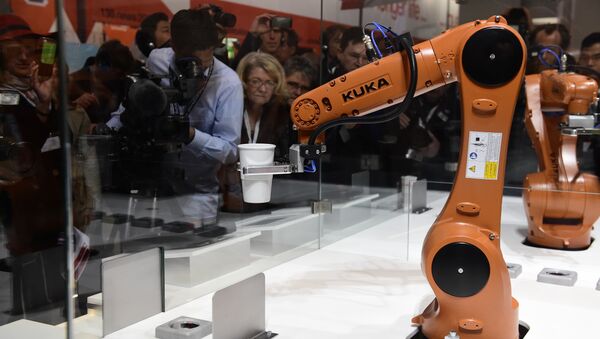The interview came after Midea Group made an offer in May to buy Kuka, one of the world's largest producers of industrial robots, in a move that provoked a widespread public outcry in Germany.
The country's Minister for Economic Affairs and Energy Sigmar Gabriel was quick to lead the German charge to find a European suitor, saying that "there are efforts to create an alternative offer," and that he would welcome steps in this direction.
[VIDEO] Handling and assembling of car doors with KUKA robots… https://t.co/7wG5uIYcnM pic.twitter.com/L6xKK92mS1
— Particle Robotics (@ParticleRobotic) 1 июня 2016 г.
"Of course, Gabriel can welcome it, but he should realize that China remains the only strategic investor when it comes to the deal. No other players, including those from Britain, France, Russia and Romania, are able to make such an attractive offer," Belov said, citing China's financial might.
He added that it is still unclear whether the state will interfere in what Belov described as a "critical situation."
"The situation in terms of the expert community is critical. The Economic Minister is under pressure to put the deal under control and start the discussion about how it affects Germany's economic security. Some have even called for prohibiting the deal," Belov said.
Interestingly, the Kuka shareholders themselves reportedly support a potential strategic investor who could inject money in Kuka's further development, according to Belov.
In 2014, the Chinese implemented a total of 190 mergers in Germany; last year the figure jumped to 260.
In particular, Chinese investors bought Kiekert, the top producer of automotive locking systems in terms of technology; and the concrete pump manufacturer Putzmeister. Additionally, they took control of the company Kion, which produces electric lift trucks




